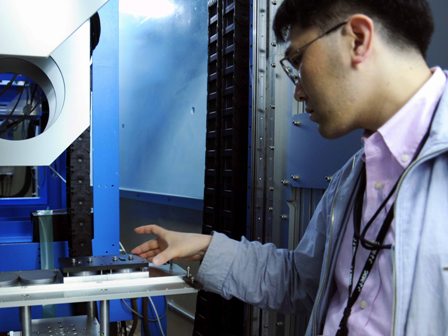KEK, to which IMSS belongs, is an inter-university research institute corporation. Large accelerators and related equipment at KEK, which are difficult for individual universities to maintain, can be used free of charge by universities and public research institutions both inside and outside Japan. IMSS accepts about 4,000 researchers per year who work in a wide variety of fields.

In the academic-industrial collaboration system, researchers from the industry and the IMSS staff work jointly on projects that have resulted in innovative achievements. Human resources, cost and equipment are shared to provide close collaboration support by using the best resources from academia and the industry.
For Research Use: Research Collaboration and User Support Office
E-mail: kyodo1<at>mail.kek.jp
For Industrial Use: Cooperative Research and Development Office
E-mail: kyodo2<at>mail.kek.jp
The operation of the Australian Beamline at the Photon Factory was started in 1992. It contributed to cutting-edge research conducted by Australian researchers and to the establishment of the Australian Synchrotron facility. The Indian Beamline was built in 2009, which will allow fundamental research by Indian researchers. We have recently been working on synchrotron research collaboration in the Asia-Oceania region and have been contributing to the construction of the SESAME accelerator in the Middle East. The Japan-UK agreement from 1986 resulted in the construction of the neutron chopper spectrometer, MARI, at ISIS in the UK with long-term visits by researchers. This formed the foundation of neutron science technology for the construction of neutron spectrometers at J-PARC. IMSS sponsors exchanges of researchers conducting advanced experiments using muon beams as well as the collaborative development of experimental devices and analysis techniques with the Paul Scherrer Institute (PSI) in Switzerland and the Tri-University Meson Factory (TRIUMF) in Canada.